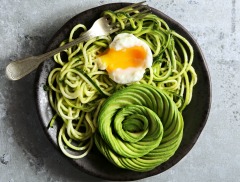Don't just meal plan... meal plan intelligently - with Meal Genius! Sign up for our free newsletter to get delicious recipes, sample meal plans and a whole lot more!
Apricots
Apricots are cousins of the peach and arrived in California with the Spanish in the eighteenth century.
These succulent summer beauties get their golden hue from disease-fighting carotenoids and are a favorite of the long-living Hunza people.
Glycemic Index=57
Glycemic Load=5
Antioxidant Score (ORAC)=1,115
The Benefits
- Special diets: Autoimmune Paleo Diet, Elimination Diet, Gluten-Free Diet, Gluten-Free/Dairy-Free Diet, Grain-Free Diet, Low Acid Diet, Low Histamine Diet, Low Oxalate Diet, Low Starch Diet, Paleo Diet (Light), Paleo Diet (Strict), Pescetarian Diet, Primal Diet, Vegetarian Diet, Whole Food
- Excellent Source of:
- Good Source of: VitaminA
- Preferences: No Molds, No Citrus, No Pseudograins, No Coconut, No Fish, No Red Meat, No Pork, No Eggs, No Shellfish, No Gluten, No Nuts, No Seeds, No Soy, No Dairy, No Poultry, No Corn, No Yeast, No Peanuts, No Nightshade, No Legumes, No Grains, Low Carbohydrate, Low Cholesterol, Low Fat, Low Sodium, Low Sugars, Low Saturated Fat
Related Foods
Related Nutrients
Selecting and Storing
Because they`re highly perishable and seasonal, 90 percent of the fresh apricots are marketed in June and July. When buying apricots, select plump, reasonably firm fruit with a uniform color. Store in a plastic bag in the refrigerator for up to 3 to 5 days. If you buy fresh apricots that are not quite ripe, store them in a paper bag at room temperature, away from heat or direct sunlight, for two to three days. Don`t wash the fruits until you`re ready to eat them. Depending on size, there are 8 to 12 apricots per pound.









